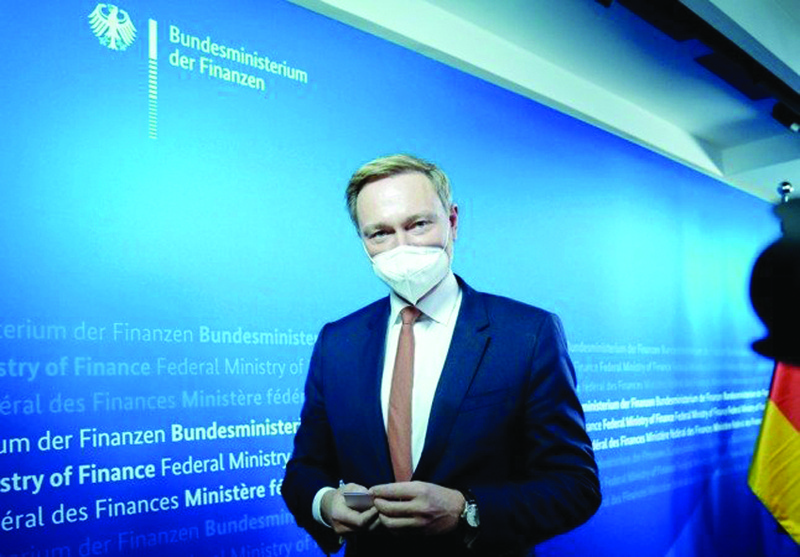 BERLIN: Germany's Finance Minister Christian Lindner announces a 60 billion euro ($68 billion) climate investment plan after the cabinet meeting yesterday.
BERLIN: Germany's Finance Minister Christian Lindner announces a 60 billion euro ($68 billion) climate investment plan after the cabinet meeting yesterday.BERLIN: The new German government approved a 60 billion euro ($68 billion) climate investment plan in a cabinet meeting yesterday, laying the first stone towards achieving its ambitious environmental targets. The agreement was announced by Finance Minister Christian Lindner, who celebrated a "booster" for Europe's top economy and "the beginning of a climate-neutral and digital future for Germany". The investment in the new government's "Climate and Transformation Fund", first announced on Friday, comes from unused debts intended to tackle the coronavirus.
The government had gained the approval from the German parliament to borrow 240.2 billion euros this year to finance measures to lessen the impact of the pandemic on businesses but will now only need 180 billion euros. Germany's coalition government of the Social Democrats (SPD), Greens and pro-business FDP has announced ambitious plans to tackle climate change, including ending coal power and generating 80 percent of electricity from renewables by 2030.
The fund, which builds on a previous "Climate and Energy Fund", will hold "around 76.2 billion euros" after the supplementary budget measures are passed, Lindner said. The fund would be topped up in future through the government's budget, the new finance minister said. Lindner stressed that the money did not amount to "new debt", a politically controversial subject in Germany. The coalition has promised a return to the so-called debt brake -- a rule enshrined in the constitution that normally limits Germany's public deficit to 0.35 percent of overall annual economic output -- by 2023.
The debt brake was lifted to help fight the coronavirus pandemic and the coalition has used the reprieve to set money aside for green investments. Lindner said he expected 100 billion euros of new debt planned by the government under the relaxed rules to be "sufficient" for 2022, but underlined the uncertainty around the economic impact of the most recent wave of the coronavirus. The budget measures will be debated in the Bundestag lower house of parliament on Thursday. - AFP










